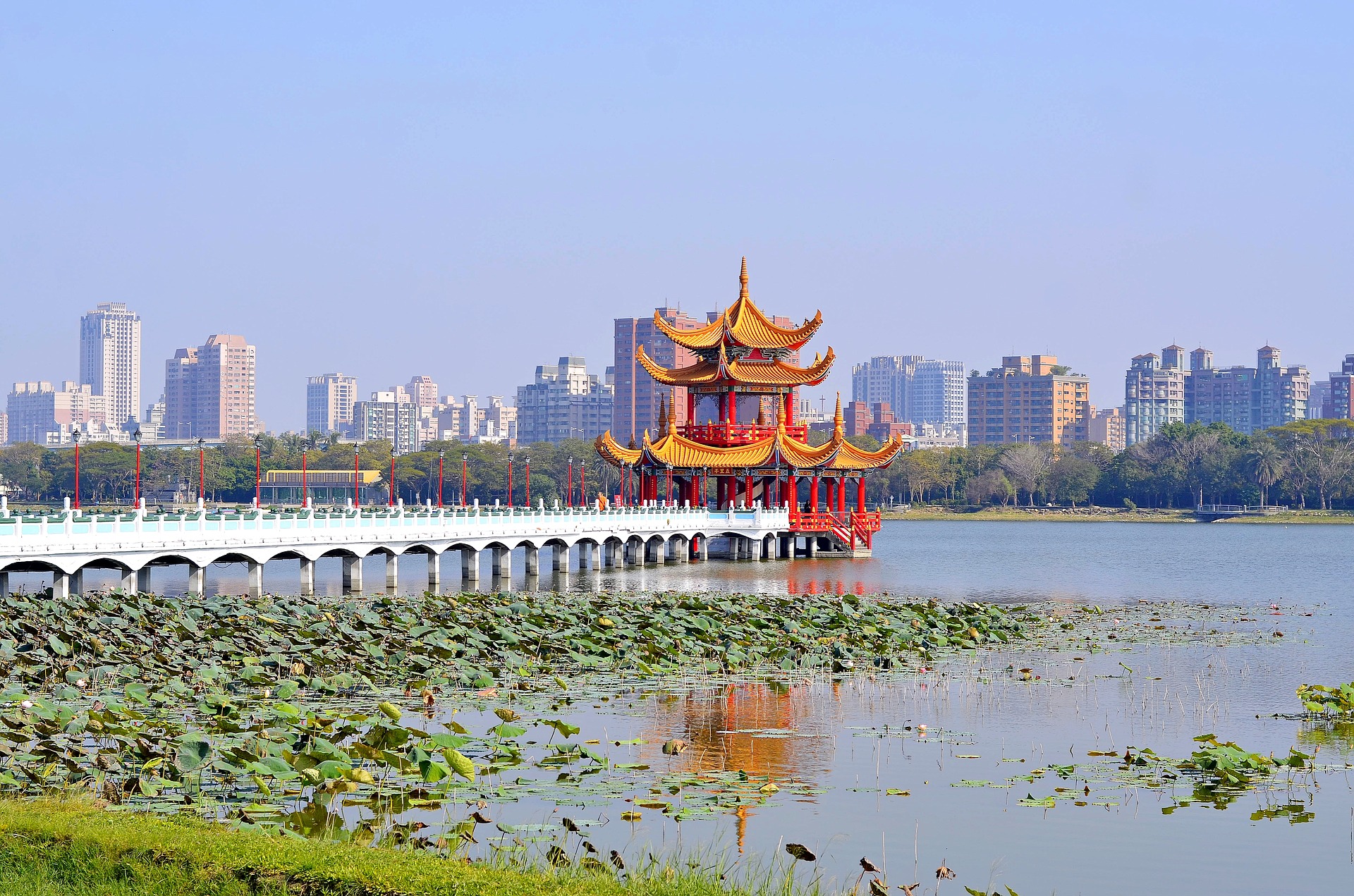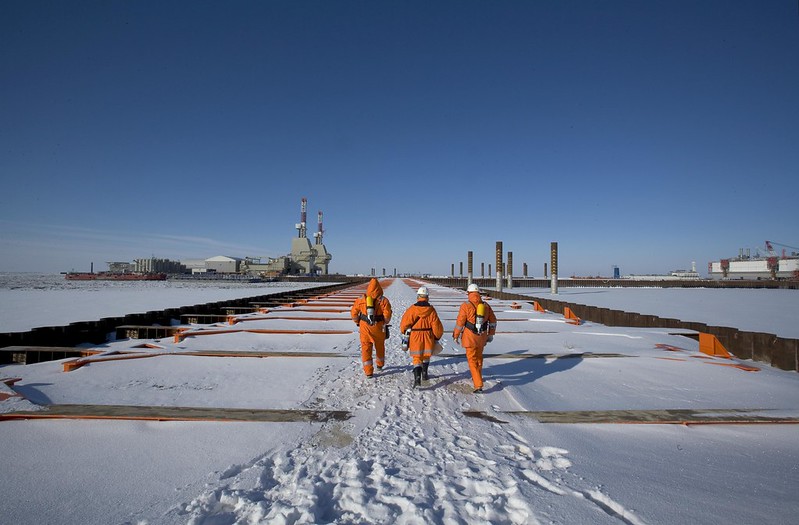Welcome to the 30th issue of the #CEEasia Briefing.
In this issue we dissect the following topics:
- Czech Republic to leave 16+1?
- Dellegations of Slovakia and Lithuania visit Taiwan
- Japanese-Lithuanian cooperation
- Japan – NATO engagement
If you like what you see, please forward this message to your friends and colleagues who can subscribe here.
Do you need to know more about East Asia? Don’t hesitate to shoot us a message about custom analysis tailored to your needs.
1. Czechia next to leave the 16+1 platform?
What’s going on? With a new government elected last year, the Czech Republic has been increasingly diverging from the objective to deepen ties with China which the previous government of Andrej Babiš largely endorsed. Indeed as indicated by a motion passed by the Czech Chamber of Deputies’ Foreign Affairs Committee that is asking to withdraw from 16+1, Prague is now reconsidering its engagement in the China-led format, citing mainly the unfulfilled promises of massive investments from China and mutually beneficial trade.
Going deeper… The Czech government’s loss of interest in cooperation with Beijing comes as little surprise after a series of failed Chinese investment projects in the country. In addition, security-related warnings against Chinese technology companies have been also increasing alongside strengthening voices of dissatisfaction with the outcomes of the 16+1 amongst the participants, some of which already withdrew from the forum. Czechia appears to be next to leave the 16+1 platform, which the Senate President Milos Vystrčil previously described as “non-functional.” It further shifts its attention to the broader Indo-Pacific region, aligning its interests with the EU-level strategy document announced last year and the national strategies of France, Germany, and the Netherlands.
This means… However, whether and when the withdrawal will happen and what it will look like remains unknown. Undertaking such a step might help the new government fulfil its pledge to reaffirm Czechia’s Western orientation, but it also carries a danger of economic and political backlash from Beijing. Since ties with China are already strained, some Czech politicians believe they have nothing to lose by supporting the withdrawal. But Czechia could also face pressure from fellow EU member states that could become secondary targets of China’s retaliation measures as it was the case when Lithuania announced its exit from the forum.
Further reading:
Reuters: Czechs considering ‘all options’ regarding China’s 16+1 group
The Diplomat: Czech Senate President Milos Vystrcil on China, Taiwan, and the 16+1
2. Slovakia’s and Lithuania’s visits to Taiwan
What’s going on? June has been another fruitful month for CEE-Taiwan relations. Following the launch of the Central and Eastern Europe Investment Fund to further investment opportunities between Taiwan and the CEE capitals, particularly Prague, Bratislava, and Vilnius, three CEE delegations visited Taipei. Early June saw a 6-day visit by a 10-member Slovak parliamentary delegation led by the Deputy Speaker of the National Council Milan Laurenčík. Highlight of the visits was the signing of the Arrangement on judicial cooperation in civil and commercial matters, the first of its kind between Taiwan and an EU member state.
After the Slovaks’ visit, two Lithuanian delegations took place. One was led by the Deputy Minister of Economy and Innovation Jovita Neliupšiene, while the other by Egidijus Giedraitis, Deputy Minister of Agriculture.
Going deeper… In addition to the judicial cooperation arrangement, the Bratislava Self-Governing Region and the southern Taiwanese city of Kaohsiung signed a partnership agreement. The Slovak delegation also met several high-ranking Taiwanese officials, including President Tsai Ing-wen, Prime Minister Su Tseng-chang, and the Minister of Foreign Affairs (MOFA) Joseph Wu.
The Lithuanian delegations had some highlights of their own, particularly the announcement that Lithuania is due to open its representative office in Taipei in September, a long-awaited development after the two countries announced the opening last year, which stands at the center of the ongoing Vilnius-Beijing tensions. The delegation also paid visits to the Taiwan Semiconductor Research Institute and the Industrial Technology Research Institute, reaffirming both sides’ intention to collaborate in industry strengths, namely between Lithuania’s laser technology and Taiwan’s semiconductors.
This means… Whereas the Slovak visit came shortly after the 43-member Slovak delegation, which visited Taipei back in December 2021, the Lithuanian delegations followed the first Taiwan-Lithuania Economic Dialogue in Vilnius in May 2022. This shows that the relations between Taiwan and the CEE countries are on an upward trajectory, which is likely to continue amidst the region’s souring relations with China. A similar development can be discerned at the EU level. The European Parliament expressed its growing concern about security in the Taiwan Strait. The two sides also recently held the EU-Taiwan Trade and Investment Dialogue, which was upgraded to a ministerial level. The EU’s support for Taiwan is likely to continue under the Czech Council Presidency, which marks the Indo-Pacific as one of its territorial priorities.
Further reading:
MOFA: Taiwan, Slovakia sign Agreement on Judicial Cooperation in Civil and Commercial Matters
MOEA: Deputy Minister receives Lithuanian delegation, deepening bilateral ties
Focus Taiwan: Bratislava, Kaohsiung sign cooperation agreement
CEIAS: EU-Taiwan Tracker
3. Japanese-Lithuanian cooperation amidst the war in Ukraine
What’s going on? Lithuanian Foreign Minister Gabrielius Landsbergis called on Japan to help try to unblock the Ukrainian port of Odesa. This shows a continuation of the deepening of cooperation between the EU (and NATO) member states and Japan.
Going deeper… Odesa, a major Ukrainian port, is closed by a blockade of Russian naval forces. The Lithuanian minister called on the Japanese counterpart to help form an international coalition that would break the blockade and allow the export of Ukrainian grain. It is estimated that there are about 27 million tons of grain for export in Ukraine, of which about 4 tons are already loaded on ships stranded in ports. As much as 95% of Ukrainian grain is commonly exported by sea. In the current situation, after the Russian invasion, the only way is transport by rail, but out of 13 railway border crossings with EU countries and Moldova, only five are in full operation, which, together with other factors, limits the volume of exported grain to 20,000 tons per day, instead of possible 50,000. Unless Ukrainian ports are unblocked, only 30 to 50% of Ukrainian grain can be shipped.
This means… Support for Ukraine in the war with Russia is a distant topic for many states. But the effort of European countries to actively involve non-European states, such as Japan, is key to raising awareness of the gravity of the situation. As a result of the war in Ukraine, Japan is becoming a much more proactive player on the global stage. The Japanese Chief of General Staff and the Japanese Prime Minister attended the NATO summit for the first time in history. The Kishida government has even taken some steps in stark contrast to the state’s current pacifist policy. A further deepening of the partnership seems probable, as the Lithuanian Minister also emphasized that “Today, the victim is Ukraine. Tomorrow, it may be Taiwan. And Japan understands this very clearly.”
Further reading:
The Baltic Times: Lithuanian formin asks for Japan’s assistance in unblocking Odessa port
Successful Farming: 27 Million tons of grains planned for export stuck in Ukraine
4. Strengthening Japan-NATO cooperation
What’s going on? Following his participation at the G7 summit in the Bavarian Alps from 26-28 June, Kishida Fumio attended the NATO summit in Madrid from 28-30 June, becoming Japan’s first prime minister to do so. With the war in Ukraine being the summit’s focal point, Kishida expressed his intention to upgrade Japan’s partnership with NATO while emphasizing the interconnectedness of European and Indo-Pacific security. Drawing similarities between Russian and Chinese activities, the summit also saw the endorsement of NATO’s new Strategic Concept, which categorized China as a challenge for the first time.
Going deeper… With the leaders of Australia, New Zealand, and South Korea participating as well, Kishida further took the initiative to host a four-way meeting on the sideline of the summit, which saw NATO’s Indo-Pacific partners agreeing to deepen their cooperation with the transatlantic alliance. This came amidst a series of recent activities, including joint naval exercises between Japanese and NATO forces in the Mediterranean Sea as well as the Tokyo meeting between Japan’s Minister of Defence and NATO’s Chair of the Military Committee, all of which signal Japan’s intention to bolster its own defense capabilities and increase defense spending.
This means… The war in Ukraine highlighted the urgency of closer security cooperation between the US, EU, and their Indo-Pacific allies. Japan’s statements and actions are particularly telling as they mark a significant shift away from Japan’s self-defense-only principle. The closer cooperation between NATO and its Indo-Pacific partners started before the Russian invasion of Ukraine. The four countries met with the NATO Ministers of Foreign Affairs in December 2020. Nevertheless, the war in Ukraine has inadvertently given such cooperation a new impetus.
Further reading:
The Japan Times: Kishida seeks major upgrade of NATO partnership after Russia’s war
The Diplomat: Japan, NATO Boost Ties Amid Russia’s Invasion of Ukraine
The Diplomat: Japan Pushes for Stronger Cooperation to Counter China at G7






